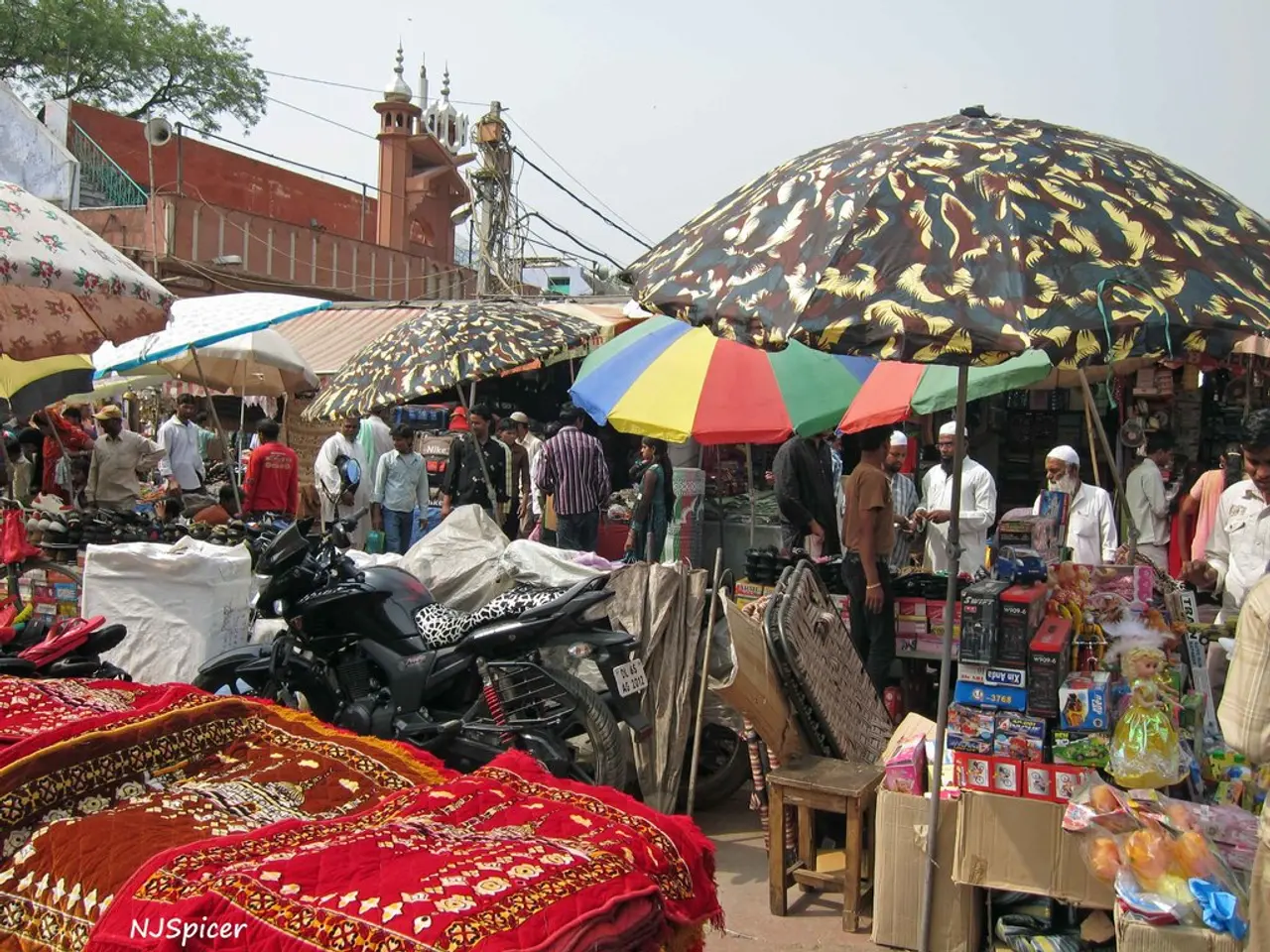Breaking News: Prime Minister Pashinyan Steps into Turkey's Heartland
Leader of Armenia's Government in Turkish Territory
Share on Social Media ** factors Mail this Printer-friendly Copy Link**
Armenian Prime Minister Nikol Pashinyan plunges into the heart of Turkey, marking a groundbreaking moment in the labyrinthine relationship between the two neighboring countries. This unprecedented visit, following an invitation from Turkish President Recep Tayyip Erdogan, showcases a significant effort in resuscitating a relationship marred by historical, political, and regional conflicts.
The two nations have rarely, if ever, made diplomatic strides since the break in relations in 1993. Despite maintaining minimal contact since 2021, progress has been slow.
The Age-Old Nagorno-Karabakh Conflict
At the heart of the strained relationship lies a longstanding conflict over the predominantly ethnic Armenian region of Nagorno-Karabakh in the South Caucasus. Turkey has consistently supported its ally Azerbaijan in this dispute. In 2020, Armenia suffered a devastating loss in the six-week war for the mountainous region, leading to the displacement of around 120,000 ethnic Armenians.
Tensions between Ankara and Yerevan persist mainly due to the mass killings of Armenians during the Ottoman Empire's reign over a century ago. Historians estimate that up to 1.5 million Armenians perished during 1915 and 1916. Turkey, the successor state to the Ottoman Empire, acknowledges the deaths of 300,000 to 500,000 Armenians during World War I. They lament the massacres but reject the characterization of the event as a genocide.
A Delicate Dance: The Armenian Genocide Recognition
Recognizing the Armenian Genocide remains a contentious and unresolved issue. Armenia and many historians categorize the 1915 Ottoman-era killings as genocide, while Turkey dismisses this terminology, attributing the deaths to civil unrest and denying the intent of organized genocide.
In an attempt to foster dialogue, Pashinyan announced earlier in 2022 that Armenia would suspend its international campaign for genocide recognition, a decision that faced criticism within Armenia. This move signifies a major gesture toward Turkey but leaves the genocide recognition issue as a diplomatic stumbling block, with any resolution likely occurring gradually via confidence-building measures rather than instant gratification.
A Wedge in the Nagorno-Karabakh Conflict
The Nagorno-Karabakh conflict continues to serve as a potent underlying factor in regional politics. Turkey's close relationship with Azerbaijan, particularly during the 2020 war, poses challenges to normalization efforts.
The meeting between Pashinyan and Erdogan holds promise for easing tensions, potentially facilitating dialogue with Azerbaijan, since Azerbaijan's President Ilham Aliev has also engaged in regional cooperation with Turkey. Although the visit does not offer an immediate resolution to the Nagorno-Karabakh issue, improving Armenia-Turkey relations may contribute to a more stable regional environment that encourages further conflict resolution.
A Hop, Skip, and a Jump Toward Reconciliation
The visit to Turkey represents a monumental step for Armenia, marking the first time an Armenian prime minister has stepped foot in the country. The event sets the stage for further high-level talks, border reopenings, and regional peace initiatives. However, despite optimism, the visit also carries the risk of backlash from domestic political opposition in both countries and Azerbaijan.
In conclusion, Nikol Pashinyan's visit to Turkey signals a cautious, albeit encouraging, move toward thawing Armenia-Turkey relations. While the visit may indirectly impact the Nagorno-Karabakh conflict and stabilize regional relations, the contentious issue of the Armenian Genocide recognition remains an unresolved sticking point that requires continued dialogue and compromise to achieve lasting peace and cooperation in the region.
- The discussion about the Armenian Genocide recognition, a contentious issue between EC countries, is a diplomatic stumbling block in the improving relationship between Armenia and Turkey, potentially affecting employment policies within both nations.
- Migration patterns in the region could be influenced by the outcome of the Nagorno-Karabakh conflict, as the normalization of Armenia-Turkey relations and resolution of this dispute may lead to safer conditions for movement, particularly for displaced persons.
- War-and-conflicts, crime-and-justice, and general-news outlets will closely monitor the developments in Armenia-Turkey relations, given their historical and political complexities, as well as the potential impacts on regional stability.








